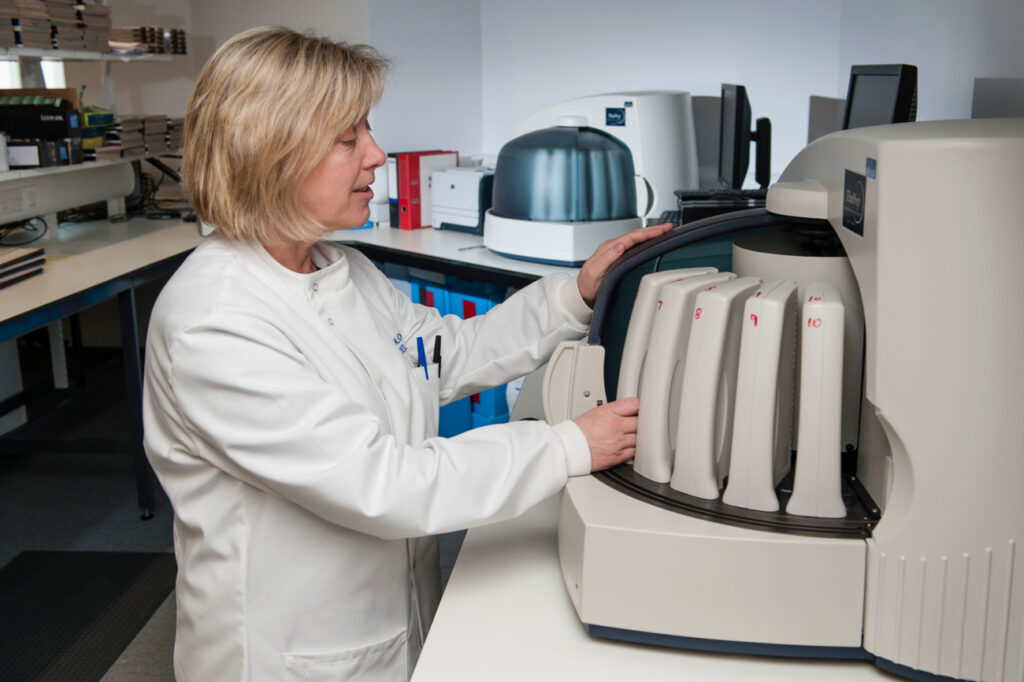What determines the treatment that may be recommended for you is the pathology of your cancer. This includes what type of cancer cells are in the tumour, whether the cells have spread into the lymph nodes (glands) and several other factors such as whether the cancer cells have hormone ‘receptors’ or HER2 receptors.
This pathology summary does not attempt to explain the types of cancer cell or molecular tests available but attached are links to resources giving more detailed information.
Molecular Testing
Alongside standard cellular pathology of tumours (describing the type of cancer cell) there is increasing importance for the role of molecular testing (testing for specific molecules in the cancer cells and looking at the detail of genetic material in your cancer). This additional information will help to guide which is the most effective treatment option for you.
In the past patients were grouped into categories attempting to predict the risk that their cancer might come back after surgery. This risk was based on the size of your tumour, whether lymph nodes were involved, how many nodes, whether the tumour was sensitive to hormone therapy and several other factors. Depending on the predicted risk that your cancer might come back after surgery an estimate was made as to whether adding further treatment after the operation might help reduce that risk, using anti-cancer medicines (chemotherapy).
It is now possible to do more sophisticated molecular tests on tumours that give us a tumour ‘profile’ which provides additional detail on the risk of recurrence. Sometimes it is not clear whether chemotherapy is needed, and tumour profiling tests can provide information to help you decide whether to have chemotherapy. These tumour profiling tests are offered by commercial companies and there are several different types available. This profiling approach is of most help if you are in the ‘intermediate’ risk group, where the benefit of chemotherapy may be marginal. If you are within the higher risk group for relapse based on other factors, then there is already a clearer benefit from receiving chemotherapy and if you have a low risk of relapse then it may already be clear that chemotherapy offers little added gain.
Molecular Diagnostic Markers
Another recent development in diagnostic testing of breast cancer is the use of molecular diagnostic markers in tumour cells. These specific markers have the potential to inform which drug treatments might work best for which patients. For example, in one category of breast cancer ‘triple negative’ which is a more aggressive tumour, there may be benefit in treating patients initially with an immunotherapy type drug, but only if they have the specific marker which suggests they are likely to respond to this.
